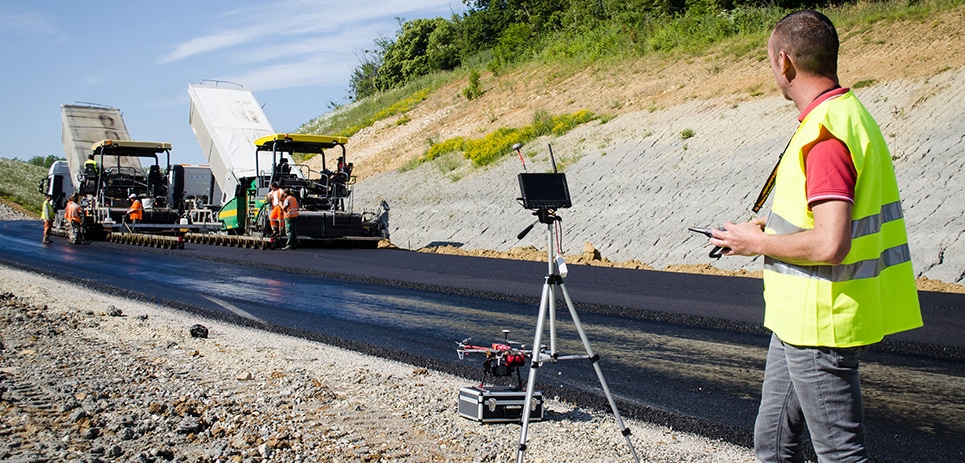Insight
Published and updated
Construction Technology: 10 “Construction Executive” Trends We’re Watching
We are big fans of construction technology and Construction Executive. It’s a treasure trove of construction-related content that appeals to small business contractors as well as enterprise-level building firms.
Construction Executive covers risk management, business management and technology. We dug into their Construction Executive Tech Trends and found 10 types of construction technology that will help you work smarter and safer.
1. Jobsite Security Remote Surveillance
The annual cost of construction site theft and vandalism is estimated in the billions of dollars. Now, new solutions help protect equipment, materials and the jobsite, even when the jobsite is mobile.
2. Drones
As drones grow more sophisticated, they become more useful on construction projects. From reviewing job progress on large projects to actually making minor repairs, drones are becoming more common in the industry. Beware privacy and regulatory concerns, though.

3. Wearables
Measuring biometrics will help monitor the health and safety of workers. Cameras can provide real-time assessment of a project to offsite management. Workers in remote locations can have another way to signal for help if necessary.
4. Building Information Modeling (BIM)
Virtual building modeling helps with project management, scheduling, productivity and the entire construction lifecycle. Globally, the BIM market is expected to reach $11.54 billion by 2022.
5. Unified Communications
Construction Executive predicts 2016 growth in Unified Communications. To increase productivity and limit downtime on the construction jobsite, where many employees bring their own devices, builders see value in integrating voice, messaging, email, etc. so that all workers can access communications on any device.
6. 3-D Printing
“We did all the concrete work on a 3-D printer.” Expect this to be a true statement in the near future. 3-D printing is already being used in modeling. Next step: 3-D printing of construction components.
7. Digital Documentation
This could be a painful transition for builders and municipalities alike, but the time- and resource-saving upsides are tremendous. When workers in the field can communicate and document changes through a mobile device while offsite engineers and inspectors can monitor in real-time, work moves faster and timelines accelerate.
8. Vehicle-mounted Cameras
Think of them as wearables for your truck, crane, drilling rig or other heavy equipment. They’re being put to use to enhance safety, monitor progress, enable in-the-field training, and analyze incidents.
9. Mobile Field Service Software
Like digital documentation, mobile field service software will convert some of your manual “analog” processes (e.g., scheduling, time cards, ordering, material handling, etc.) into automated tasks to help all craftspeople, managers, engineers and executives work smarter.
10. Business Intelligence
Judging by the construction technology referenced on this list and the many other topics discussed at Construction Executive, even the lone contractor will need insight into big data analytics and business intelligence (BI). Acting on all the data gathered by cameras, drones, software and digital documentation will require sophisticated applications that emphasize simple user experiences for use in the work zone.
Which construction technology trends are you watching in the new year? Share your thoughts on social.